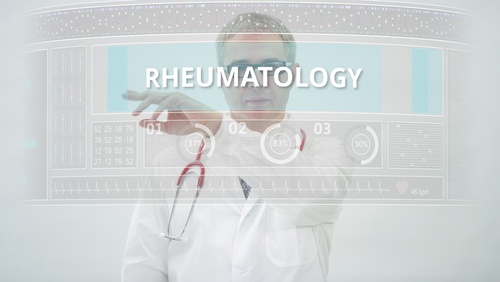
The Longitudinal Knowledge Assessment (LKA) was recently launched by the American Board of Internal Medicine for Rheumatology, offering a five-year cycle for ongoing rheumatology knowledge assessment as an alternative to the traditional 10-year examination at a testing center in-person [1]. Practicing rheumatologists who sign up for the LKA will receive a block of questions each quarter and be able to answer multiple choice questions from home or a location of their preference via the Internet. The ABIM notes, “The LKA is designed with your personal and professional needs in mind: greater flexibility, more convenience and faster feedback” [1].
Previously, the ABIM Rheumatology Maintenance of Certification (MOC) assessment requirements included a comprehensive in-person exam at a monitored testing center every 10 years. The idea behind the LKA was to offer an alternative assessment tool. At a recent ACR and ABIM Virtual Town Hall on the LKA, ACR President Dr. Kenneth G. Saag commented, “We are cautiously optimistic that this longitudinal knowledge assessment may address a number of the elements that members have told us are important in the evolution of maintenance of certification.” These included an alternative to the ‘secure, closed-book, high-stakes MOC examination’ as well as eliminating previous elements of MOC [2].
So you may be wondering: what are the logistics for this new LKA assessment? The LKA offers a total of 600 possible questions over a five-year period. Thirty new questions are released quarterly, and participants must open at least 500 out of 600 questions over 5 years to meet the participation requirement. Participants receive 0.2 MOC points for each correct answer, with potential to earn up to 24 MOC points per year if all questions are answered correctly [1]. These LKA questions can be counted towards one’s MOC point requirements, and the ABIM notes that an individual could potentially meet all MOC point requirements through LKA participation alone [3]. The benefits to the LKA allow busy practicing rheumatologists to participate in MOC with answering questions at a time and location convenient to them and eliminating the pressures of preparing or studying for a 10-year exam, by a more intermittent and regular assessment of knowledge longitudinally. Additionally, the LKA questions are “open-book” and participants can use any available resources, except other individuals, to answer questions. However, participants must answer the question correctly within four minutes to receive credit.
Rheumatologists will receive feedback on question responses including an explanation and references, with an updated score report on a quarterly basis after the first year to identify areas to target for further study. At the end of the 5-year cycle, a final pass/fail decision is made; an individual who passes can re-enroll in LKA for the subsequent 5 years or choose to take the traditional, 10-year MOC exam to maintain certification [1]. Individuals who fail the LKA are required to pass the 10-year MOC exam within the following calendar year to maintain certification. A specific percentage of correct answers needed to pass the examination has not been released [2]. And if the thought of doing questions on a recurring basis is not enticing to you, the traditional 10-year MOC exam remains a valid option currently. Additionally, you can continue to earn MOC points outside the LKA through “thousands of activities eligible for both CME and MOC,” the ABIM website notes [3].
During the Q&A, many newly certified rheumatologists were confused regarding when they needed to enroll in the LKA. Participants are eligible to enroll in the LKA during the calendar year that their MOC assessment is due. For example, a rheumatologist due for recertification in 2022 would be eligible to enroll in the LKA now. After enrollment in the LKA, certification remains active for the following five years while the LKA assessment is ongoing. As we embrace digital forms of education and asynchronous learning, the new LKA assessment from ABIM will offer a novel, more convenient manner to maintain certification for many rheumatologists who prefer a less high-stakes examination and regular, ongoing learning tools for maintaining their knowledge base in Rheumatology.
References:
[1] Longitudinal Knowledge Assessment, American Board of Internal Medicine. Link: https://www.abim.org/lka
[2] ACR / ABIM Virtual Town Hall, ABIM Longituinal Knowledge Assessment (LKA) Virtual Town Hall, January 27, 2022
[3] Longitudinal Knowledge Assessment, Earn MOC Points through LKA, American Board of Internal Medicine. Link: https://www.abim.org/Media/k4shiv3x/lka-moc-points.pdf







 © 2025 Mashup Media, LLC, a Formedics Property. All Rights Reserved.
© 2025 Mashup Media, LLC, a Formedics Property. All Rights Reserved.